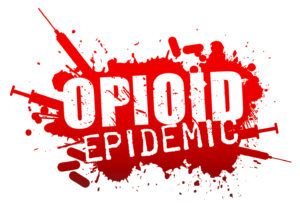CHHSM to Sponsor Resolution on Opioid Crisis at 2019 UCC General Synod
 The UCC’s Council for Health and Human Service Ministries has announced that it will sponsor a resolution on the opioid crisis at the UCC’s 2019 General Synod, to be held June 21-25, 2019, in Milwaukee, Wis.
The UCC’s Council for Health and Human Service Ministries has announced that it will sponsor a resolution on the opioid crisis at the UCC’s 2019 General Synod, to be held June 21-25, 2019, in Milwaukee, Wis.
The resolution will address two prongs of the crisis: access to treatment and the actions of pharmaceutical companies.
“Now is the time for people of faith to step forward,” says Michael J. Readinger, president and CEO of CHHSM. “The opioid epidemic is a public health crisis, whose devastating effects are felt in every sector of daily life. By sponsoring this resolution, we are calling on the UCC in all of its ministries to advocate for accessible treatment for addiction and ethical marketing and distribution of prescription opioids.”
Opioid overdoses have increased astronomically in recent years. The National Institute on Drug Abuse reports that each day, more than 115 people in the United States die after overdosing on opioids. The drugs include such prescription pain relievers as oxycodone and hydrocodone, plus heroin and synthetic opioids such as fentanyl. In the Midwest alone, opioid overdoses increased 70 percent from July 2016 through September 2017.
Resolution to Offer Basis for Advocacy
CHHSM currently is working closely with partners to hammer out the language of the resolution.
 “Every day, CHHSM’s member ministries are ‘in the trenches,’ offering support and services to families and individuals impacted by the opioid crisis,” says Readinger. “In their partnerships with local UCC congregations and other health care institutions, our CHHSM members advocate for, support, and work to reunite families torn apart by opioid addiction. Often, those providing the care are frustrated by the lack of access to the latest addiction and mental health treatment programs.”
“Every day, CHHSM’s member ministries are ‘in the trenches,’ offering support and services to families and individuals impacted by the opioid crisis,” says Readinger. “In their partnerships with local UCC congregations and other health care institutions, our CHHSM members advocate for, support, and work to reunite families torn apart by opioid addiction. Often, those providing the care are frustrated by the lack of access to the latest addiction and mental health treatment programs.”
Danielle Bartz, CHHSM’s associate for leadership and advocacy, is one of the resolution’s authors. She says that without action, the access issues will only grow.
“The opioid crisis effects all our members, from children who have to be removed from their homes because of addiction by their caregivers to seniors who are often overlooked when people thinking about the need for treatment,” says Bartz. “This crisis is one that does not discriminate about who it impacts; however, treatment continues to remain limited and costly, thereby creating disparities in how the crisis is responded to.”
Readinger concurs. “One of our goals to talk about this crisis in a way that does not cast judgment on those it has hit, but rather encourages our healthcare systems to provide easy access to treatment.”
Working for the Common Good
The current opioid crisis has been called “the worst drug crisis in American history” by the New York Times, whose devastation can be felt in every community in the country.
“When something this catastrophic impacts our communities, it is the responsibility of organizations like CHHSM to take action,” says Readinger. “CHHSM’s up-close work in health care and social services, and its role as an advocate for a just health care and human service system, makes us the perfect group to spur on the United Church of Christ to action.
The CHHSM-sponsored resolution is another way of showing the UCC’s love of neighbor and love of children as, together as a people of faith, we work to create a just world for all.”
Read an in-depth feature article on various CHHSM members and their work with youth and families impacted by opioid addiction.
Join Our Mailing LIst
Follow on Facebook
Iredell Adult Day Services Hosts Ribbon-Cutting to Celebrate Adult Day Health Certification - CHHSM
www.chhsm.org
Iredell Adult Day Services (IADS) in Newton, N.C. — a nonprofit organization dedicated to caring for older adults, vulnerable groups, and their families, and part of EveryAge — hosted a ribbon cut...